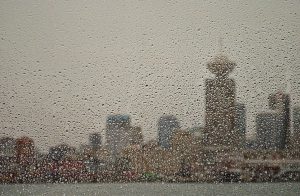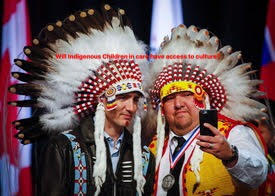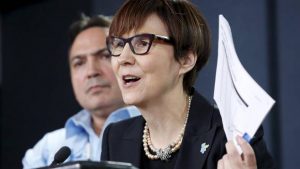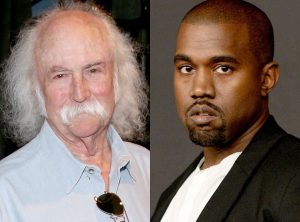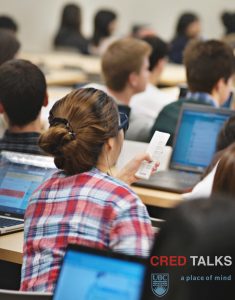Housing, dog companionship hard for urban Indigenous peoples wanting to maintain cultural ties, says Mario Parent.
By Mario Parent, special to, MNM. Posted: Mar 1, 2017 1:00 AM PST Last Updated: Mar 1, 2017 8:00 am PST
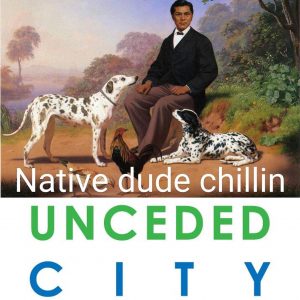
Can I get a dog? This is a question I’ve been asking myself lately with serious contemplation. As it stands I’m fast approaching thirty and I’ve yet to experience the companionship of a dog. Let’s start with why dogs have become important to me and go from there.
Analepsis
To begin my story I was twenty-five the first time I realized I actually liked dogs. Before that I was mostly indifferent, and would rarely be in a situation where I had to engage with a dog. It happened by chance. Perhaps by fate. Nonetheless I met my first true dog friend. One day I was asked to look after a small dog for the afternoon. It was a warm summer day and I still had my daily beat to do. So without skipping a step I did what any eastvan kid would do. Packed up that pupper in my Hershel and took off on a sweet bike adventure through the neighbourhood! We blasted summer jams and drove slow for the homies. Let the sixteen bars flow over the turning lanes cause we don’t colour in the lines. We peed in an ally and farted with the wind blowing through our tufts of hair. As the glowing ember of sun set over the musqueam horizon we sheepishly made our way home and kept our fun to those brief escapes from urban blight. On return visits to my new dog friend I was continually greeted with ecstatic-unrelinquished-unconditional love. To contextualize this further I’ve grown used to haters in my life. I’m a hustler from way back and I don’t take no mess from nobody. But it was this kind of genuine love that sold me to need dogs in my life. No matter what was going on in my day this pupper was always on my team. I’d look into those goop rimmed eyes and understand I was in a judge free zone.
Prolepsis
Back to the future, I’m writing a blog that engages intersectional and decolonial theory by way of puppy memes. The impact of my four legged friendships has become a critical part of my study and praxis. The guiding principles of compassion and understanding I learnt from dogs have carried on into my work and helped heal a part of myself at one time I couldn’t admit was broken.
The realness tho. Why does thinking about getting a dog matter to me now?
Well, I’ve realized I could soon have the financial ability to support myself and a dog, in the Vancouver rental market. I grew up living well below the poverty line under the constant reminder from my single parent mother that the little housing we had was still a privilege, and could always be taken away. Dogs were a luxury that rich people had in the city, or my cousins on the Rez would let run wild. For low income families like mine basic survival was the priority: food, shelter, clothing. The consciousness of home instability was clear from the age of three. Since then I’ve moved between home spaces consistently every couple of years, ending up in eastvan about six years ago. I’ve always rented with roommates and never once had a place that would allow pets. Finding affordable housing let alone culturally appropriate housing is difficult. The ongoing joke Of a two-bedroom on craigslist is that its always a one bedroom with a sheet down the center.
Vancouver it’s been argued has one of the highest costs of living in North America. Unfortunately with that cost of living is the externality of displacing the city’s most vulnerable. Through the process of gentrification class is displacing people from their homes. Historically, this has meant displacing Indigenous peoples from their lands, because of their race. Remnants of this process are called reserves. Metrovan has a few left. Reserves were created to make space for the benefit of white settlers to farm and exploit what resources could be extracted from the land. Today these spaces are no longer farms, but city parks and condos- The symbol of Vancouver’s world renowned leisurely lifestyle. The classist settler tradition of displacement is being consolidated in parks and condos; even more, lifestyle is the resource being extracted from the appropriated land.
With so many green spaces- one would be hard pressed not have a park to piss in.
When thinking about the cultural appropriateness of these green spaces Indigenous peoples are significantly underrepresented. When I visit spaces like Dude Chilling Park, I ask myself who has access to this space and who shapes what this space is? Don’t get me wrong I love Dude chillin and am inspired by the initiative. However, when I think about my social mobility and my newly aquired stability I want to keep one hand forward and one hand back. I’m remembering to honour those Indigenous peoples before me that were sacrificed for this city, and I’m thinking about the future generations who I wish could have access to land and the opportunity to connect with animals.
What does it mean to have a culturally appropriate Indigenous centred space in Vancouver?
Currently the research for Urban Indigenous health determinants isn’t there yet. As mentioned in this report. “What the social determinants literature tends not to account for […] is the ways that colonial institutions, ideas, and practices combine to undermine Indigenous peoples’ access to and control over a range of social determinants such as culture, physical environment and healthy development.”
Thinking through the opportunities of green spaces and housing. It means making space for Indigenous peoples to determine how a city park is shaped. It means making space for Indigenous people to determine culturally appropriate housing. For myself if it wasn’t for “borrowing” access to appropriate housing, and green space I might not have developed a connection with my best pupper friend.
Ps: a friend also noted that spiritual practice such as tobacco use is still an issue with Vancouver city parks and B.C provincial parks. As for Justin Trudeau he just wants a place to store his canoe, lol.
